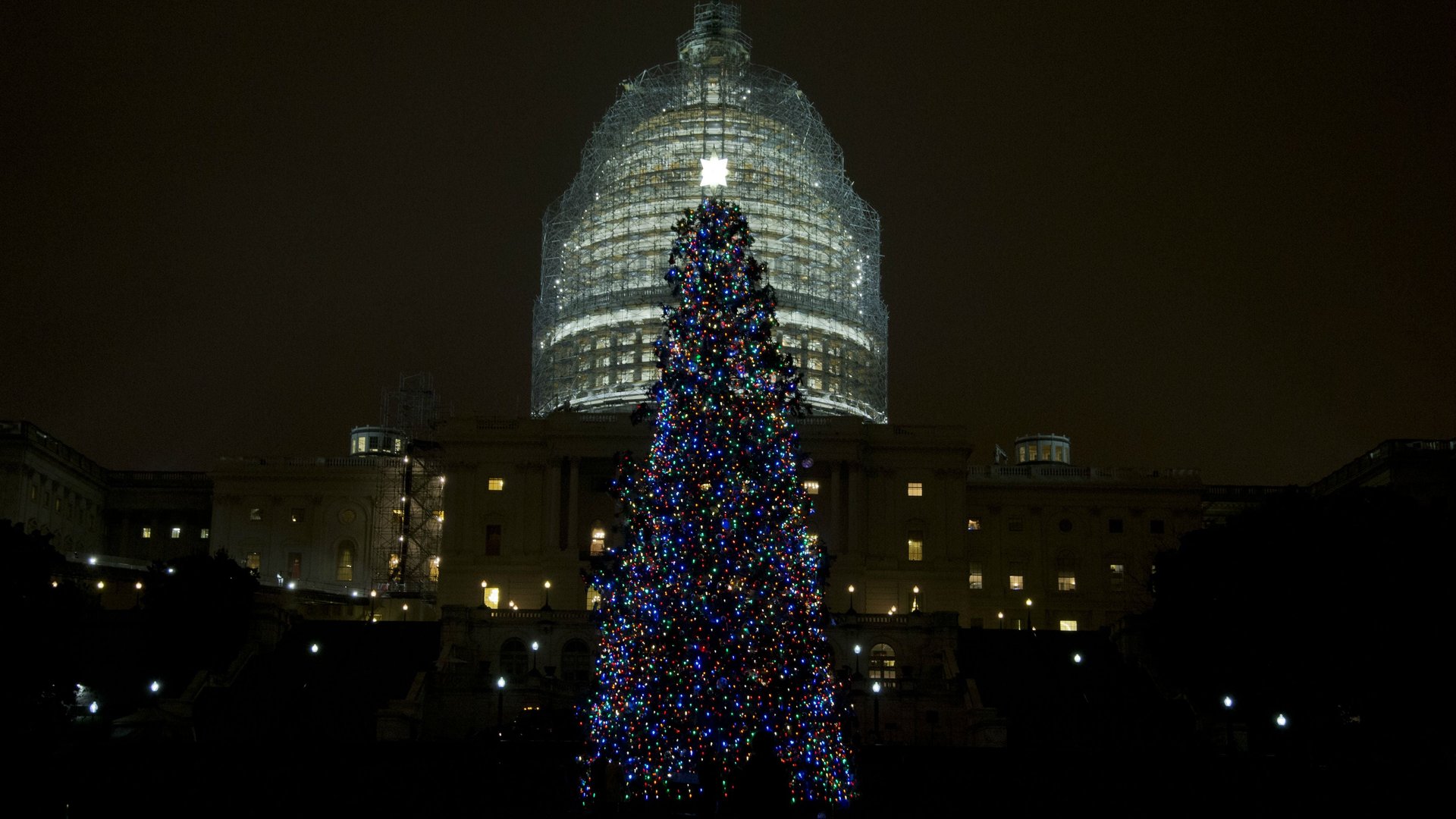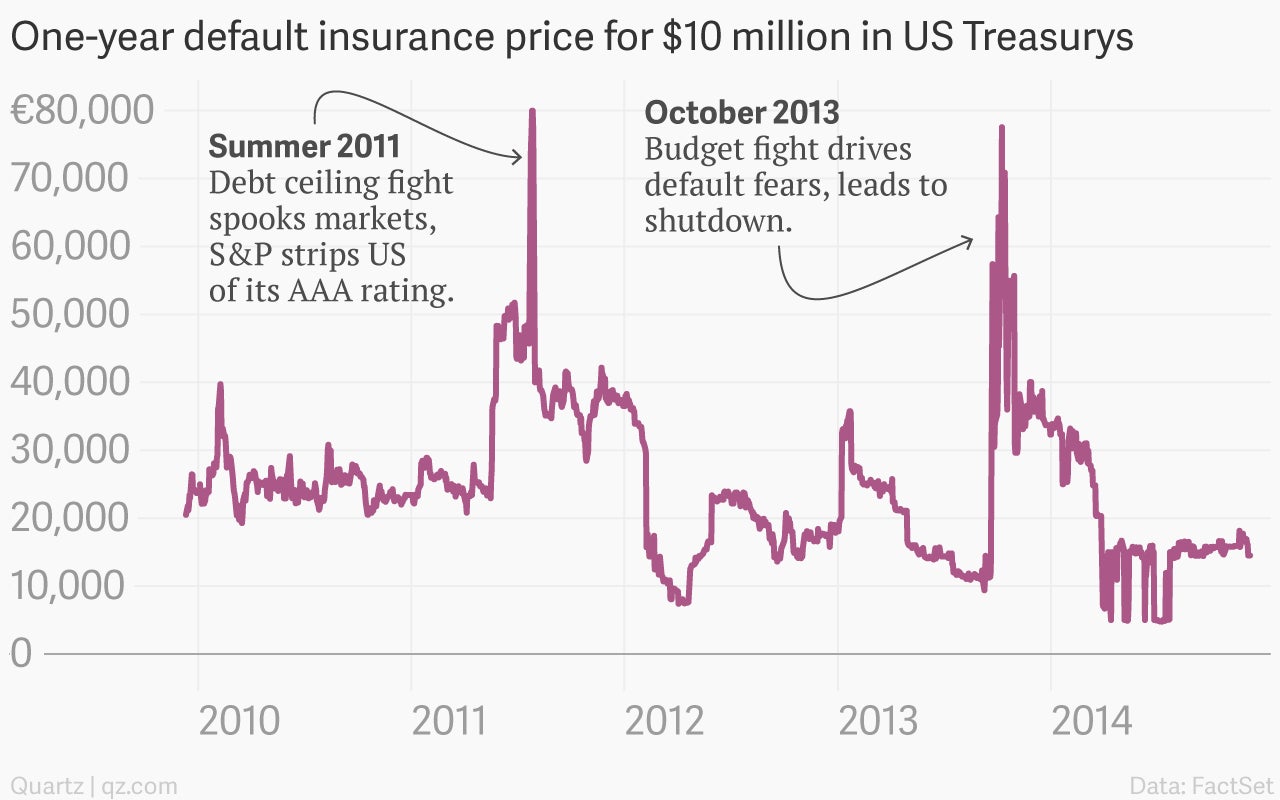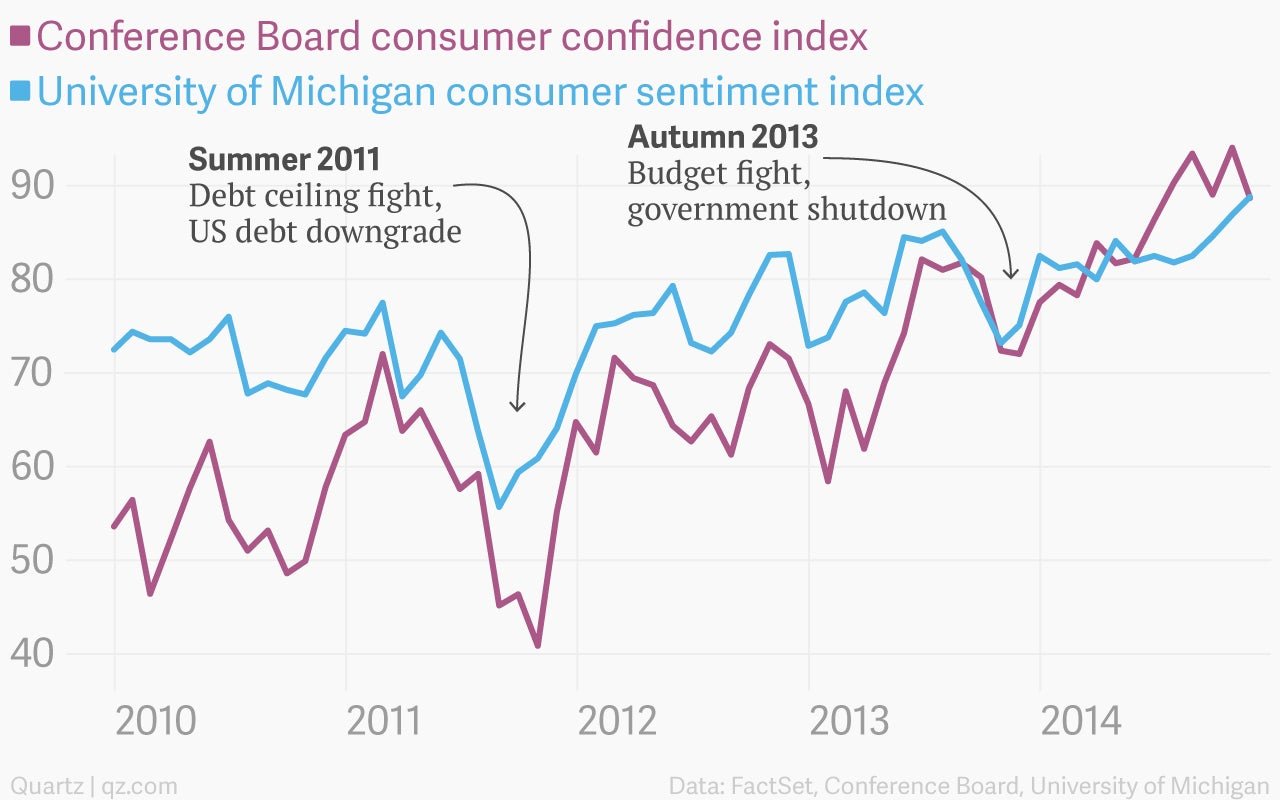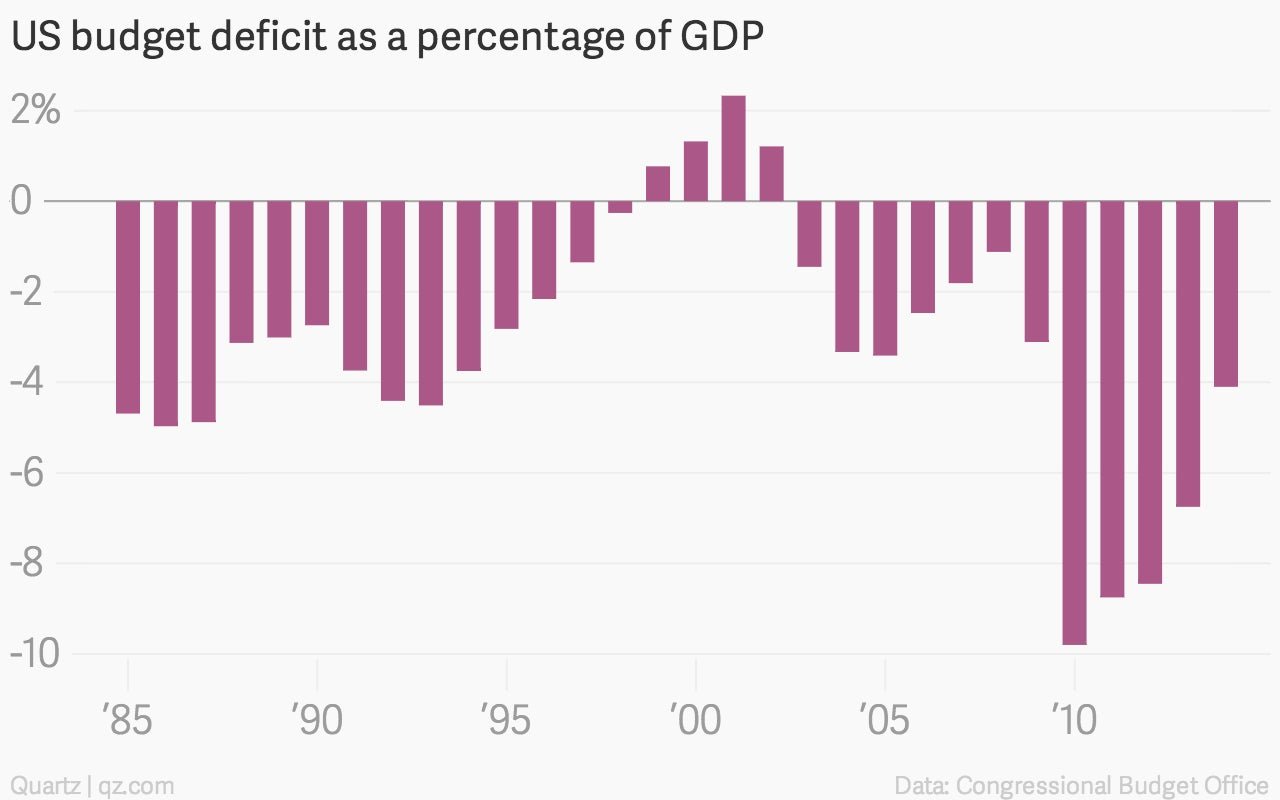Incredibly, the Republican Congress might not sabotage the US economy this time around
Shouldn’t we all be terrified?


Shouldn’t we all be terrified?
After all, the temporary spending measure that has allowed the US government to continue functioning since it was passed in September is set to expire on Thursday. In recent years, such mundane bureaucratic deadlines have morphed into moments of high drama, as the Republican-dominated US Congress had sought to use them to extract concessions from the Obama administration.
Who could forget the debt-ceiling fight over the summer of 2011, which ultimately led S&P to yank the US’ AAA rating? And then there was the budget fight that resulted in the government shutdown of October 2013. As you can see from this chart—which shows the price for tradable default insurance products, known as credit default swaps—both those events prompted markets to radically rethink the old notion that US government bonds were essentially free of the risk of default.

But there’s nary a sign of worry in financial markets at the moment. That’s because the 2013 federal government shutdown, which lasted 16 days, proved wildly unpopular and Republicans caught most of the flack for it. Of course, the dissatisfaction with the GOP faded quickly, allowing the party to stampede to victory in mid-term elections last month. While hard-line conservatives associated with the Tea Party movement continue to push to use budgetary deadlines for maximum leverage, the GOP leadership is trying to project an image of responsible leadership that wouldn’t mesh well with any sort of budget brinksmanship.
This is very good development. Previous shenanigans over the budget were really damaging to US consumer sentiment, which has been incredibly slow to recover from the financial crisis and Great Recession.

Moreover, from the Republican perspective, there’s been vast improvement in recent months when it comes to the US budget deficit. The deficit exploded higher during the worst of the recession that followed the financial crisis, as the government borrowed big to pay for huge outlays both to stabilize the financial system, and pay for a surge of unemployment benefits. The deficit has gone from 10% of GDP in 2009, to about 4% in 2013. (The CBO projects it will be roughly 3% when all is said and done in 2014.)

Republicans have a right to take some credit for this improvement. (After all, the budget wrangling—while unsettling and at times quite risky—likely kept some budgetary costs in check.) But they’re wise not to push this budgetary deadline towards another manufactured crisis.
After all, the US economy is finally showing signs of really robust improvement, with 321,000 new jobs created in November. The Obama administration hasn’t gotten much credit for the improvement, in part because piddling wage gains don’t mean much of the country still feels itself mired in recession. But if Republicans launched another rancorous, disruptive budget fight just as the US economy seems to be lifting off, they’d clearly catch all the blame for any potential turbulence the economy could still hit.